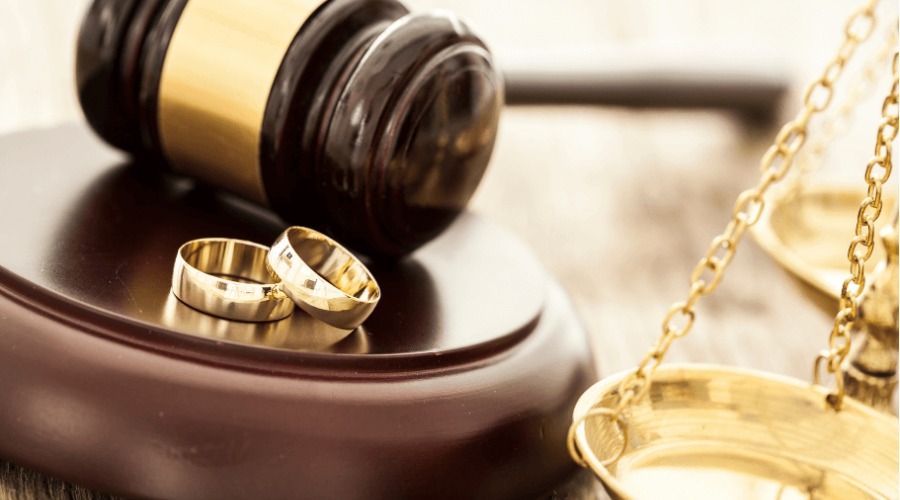
- Home
- Divorce Lawyers Serving Manassas
Divorce Lawyers Serving Manassas
- Difference Between a Contested and Uncontested Divorce in Manassas
- How Are Marital Assets Divided in Manassas, Virginia?
- Will I Be Required to Pay Spousal Support After a Divorce in Manassas, Virginia?
- How is Child Custody Handled in a Manassas Divorce?
- Less Common Questions About Divorce
- Benefits of Hiring Manassas Divorce Lawyers at ShounBach
- We Won’t Take Your Divorce Lightly
Divorces can be painful and time-consuming. Your life will likely change in many ways. Having minor children and marital assets can make divorce even more stressful. The specifics of every divorce case can vary, but our recommendation stays the same: An attorney can be crucial to the outcome. Our knowledgeable Northern Virginia attorneys are experienced and ready to assist, providing legal advice, guidance, and representation in your divorce.
Difference Between a Contested and Uncontested Divorce in Manassas
When you and your spouse can reach a settlement agreement to obtain a divorce without going to court, it is considered an uncontested divorce.
A contested divorce, however, is much more complicated. It requires an emotional and time-consuming process and can involve complex legal issues.
The grounds for a fault-based divorce, which becomes a contested divorce, include:
Adultery
Adultery is one of the hardest grounds to prevail on in divorce proceedings. In Virginia, adultery is a misdemeanor and also can be grounds for divorce. However, there must be clear and convincing evidence, with third party corroboration, for a party to be granted a divorce based on the grounds of adultery.
Cruelty
Acts of cruelty affecting the life and welfare of one spouse can also be grounds for divorce. While Virginia divorce law defines cruelty in terms of inflicting physical harm that endangers the health and life of an individual, it also can include mental abuse. Although physical or mental cruelty is typically demonstrated by successive acts of ill treatment, a single severe act may be enough to warrant such grounds for a divorce.
Willful Desertion/Abandonment
Desertion as grounds for divorce occurs when there is a willful breaking off of cohabitation in a marriage, combined with an intent to desert the other spouse. . However, a divorce on the grounds of desertion will not be granted if a party is found to be legally justified in leaving the marriage and has unsuccessfully attempted less dramatic means, such as counseling.
Criminal Conviction of a Felony
If a spouse receives a criminal conviction for a felony, the other spouse can potentially file for divorce on the grounds of that conviction. However, the sentencing must carry a certain amount of time (at least one year) for it to be considered fault-based. Due to such imprisonment, the two parties cannot continue cohabitating, thus allowing for the filing and granting of a divorce.
How Are Marital Assets Divided in Manassas, Virginia?

One of the most stressful aspects of a Virginia divorce is the division of property. This property division will depend on which property is determined to be marital property, which property is determined to be separate property. Marital property is generally defined as property acquired or earned by either spouse from the date of marriage to the date of separation, except by gift, bequest or inheritance.
Regarding the actual division of marital property, Virginia Code § 20-107.3 provides that the court consider all marital assets and debts in its decision.
Virginia uses equitable distribution when dividing marital assets. Equitable distribution means that a judge will make a fair and impartial distribution of marital assets based on consideration of certain factors in the Virginia Code. It does not necessarily mean the parties will receive an equal division of the marital property.
The judge will first classify all property as separate, marital, or a combination (hybrid). Next, the judge will determine the value of property based upon all documentation and evidence presented during the trial. Finally, the court will divide property between the two parties based on certain factors in the Virginia Code and upon what occurs in court, including the parties’ testimony, witnesses, documentation, and presented evidence.
Will I Be Required to Pay Spousal Support After a Divorce in Manassas, Virginia?
- Married spouses in Manassas have a legal obligation to be financially responsible for each other. Upon a divorce, however, only one spouse may be responsible for providing financial support to the other spouse. Some of the factors in Manassas that determine whether and how much spousal support will be paid include the following.
- Financial resources and needs of each party
- Ability of the support-seeking spouse to be at least partially self-supporting
- Time needed for one spouse to obtain training or education to find employment
- The standard of living spouses established during the marriage
- How long the parties have been married
- Contributions (monetary and non-monetary) of each spouse to the family’s well-being
- Factors behind the decision for divorce, such as adultery
- Any agreements made between the spouses
- Any other factors deemed relevant by the court
Spousal support in the state of Virginia may time limited or indefinite. An initial spousal support award pursuant to a divorce must be made at the time of the divorce. However, depending on how the award is structured, it may be modified later. Consult with a Manassas divorce attorney as soon as possible to learn more.
How is Child Custody Handled in a Manassas Divorce?
- During a divorce, you may be granted legal and physical custody of your child. Legal custody refers to control and care with the ability to make major decisions for that child. Physical custody, however, relates to where the child will live and who will provide daily care. In many divorce cases in Virginia, both parents will share in some level of custody.When child support, custody, and visitation matters must also be addressed during an active or open divorce proceedings case, such review and decision-making will likely fall on the Circuit Court. However, if such custody matters are not part of an active divorce case, they may be heard by the Juvenile and Domestic Relations Court.
One of two methods may be used to determine the terms of child custody in a divorce. These include: - The spouses together reach an agreement via informal negotiations or by way of an alternative dispute resolution proceeding, such as mediation.
- The matter goes before the court, where a judge decides. The “best interests of the child” standard is at the heart of custody and visitation decisions. Under the best interest standard, several factors are taken into consideration.
Less Common Questions About Divorce
Many questions arise during a divorce, and you need reliable answers. You may want to think about these less common topics and potentially seek legal advice from an attorney experienced in family law matters.
What is Marital Waste in a Manassas Divorce?
In a Manassas divorce, marital waste, also referred to as dissipation of assets, occurs when one spouse deliberately misuses or disposes of marital property to deprive the other of their fair share upon divorce. If found to exist, the court can consider this behavior when assigning equitable distribution of remaining marital assets.
What Happens to Property Outside the State in a Divorce?
Your current state of residence will most likely have jurisdiction over you and your marriage. However, the court may lack jurisdiction and the legal authority to issue a ruling on any property located in another state.
To work around this, the court may use its jurisdiction over the parties to enter an Order that directs one spouse to divide property in a certain way, regardless of location.
Who Receives Custody of a Pet in a Manassas Divorce?
While we consider our pets part of the family, according to Virginia law, a pet is classified as personal property. Custody is not shared, but the pet is given to one party or the other. If you and your spouse cannot come to a decision about who will care for the pet, the judge will do it for you after considering several factors. A few of these factors include who spends the most time caring for the pet, such as feeding, walking, and attending vet appointments.
What are the Tax Implications for a Manassas Divorce?
Regarding divorce settlements, there can be several tax implications, which can be troublesome to one or both parties. Tax issues can arise when property is ordered to be transferred to a party. Much, however, depends on what type of assets must be transferred, their value, your tax exemptions, and the financial status of each spouse after the divorce.
A Manassas, VA divorce lawyer can help determine the best ways to decrease tax implications. Also, your attorney can review a divorce settlement and ensure that it includes an outline of property transfers and how such transfers impact taxes, helping you to avoid any potential tax penalties later on.
How Are Retirement Accounts Affected in a Divorce?
Retirement accounts in a Manassas divorce will be classified as marital, separate or hybrid property. Retirement accounts that are determined to be at least part marital property will be divided in accordance with the equitable distribution statute.
Benefits of Hiring Manassas Divorce Lawyers at ShounBach

- Undergoing the divorce process can be overwhelming, and having an experienced family law attorney by your side is imperative. A Manassas divorce attorney with the law group of ShounBach can provide you with the legal advice and representation you need at this time. Some of the benefits we provide with our legal services include:
- Providing in-depth legal expertise and experience, with over 40 years of experience successfully serving clients (see testimonials on our website)
- Presenting customized solutions in your divorce, tailored specifically to your particular situation and needs
- Entering negotiations on your behalf and representing you in mediation sessions
- Compiling thorough documentation for your case
- Helping to make sure all marital property is identified, including real estate, retirement accounts and plans, shared business, stocks, bonds, and more
- Building a case with proof for grounds for the divorce, such as adultery
- Explaining the various tax implications of any property transfer and providing legal options, if applicable
- Filing for spousal support and child custody
As one of the largest firms dedicated solely to family law and estate planning serving Manassas, we have the experience you need and the courtroom power to help advocate effectively for your rights. If you’re ready to start your divorce, schedule a consultation with our team.
We Won’t Take Your Divorce Lightly
Realizing your marriage is at its end is stressful enough. What comes next can be downright overwhelming. Divorce proceedings take time and preparation so that you are treated fairly within the bounds of what the law provides. The Manassas family lawyers with the law office of ShounBach in Virginia will never take your divorce lightly and will provide you with the compassionate and experienced legal representation you deserve.
If you live anywhere in Northern Virginia, including Manassas, Fairfax, Alexandria, Prince William County, Arlington, Leesburg, or beyond, we can help. Call us to handle all of your family law matters, including separation agreements, protective orders, custody, and alimony. Contact our office today at 703-222-3333 or with the online contact form, and schedule an initial consultation.
- Difference Between a Contested and Uncontested Divorce in Manassas
- How Are Marital Assets Divided in Manassas, Virginia?
- Will I Be Required to Pay Spousal Support After a Divorce in Manassas, Virginia?
- How is Child Custody Handled in a Manassas Divorce?
- Less Common Questions About Divorce
- Benefits of Hiring Manassas Divorce Lawyers at ShounBach
- We Won’t Take Your Divorce Lightly
Don’t Navigate This Process Alone
"*" indicates required fields
Phone: 703-222-3333
Fax: 703-222-3340
Contact Us


